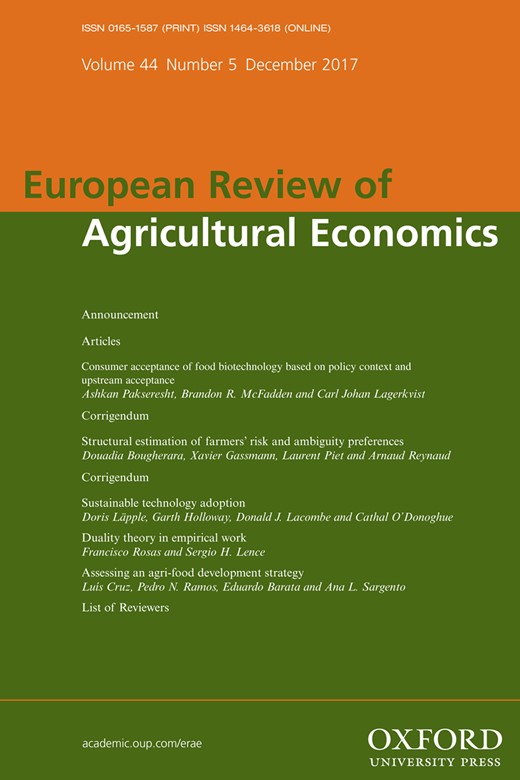-
Views
-
Cite
Cite
Douadia Bougherara, Xavier Gassmann, Laurent Piet, Arnaud Reynaud, Structural estimation of farmers’ risk and ambiguity preferences: a field experiment, European Review of Agricultural Economics, Volume 44, Issue 5, December 2017, Pages 782–808, https://doi.org/10.1093/erae/jbx011
Close - Share Icon Share
Abstract
The distinction between risk, where agents assign well-defined probabilities to possible outcomes, and ambiguity, where agents do not, has long been of particular interest. Using a carefully designed field experiment, we elicit information about risk and ambiguity preferences among 197 French farmers and structurally estimate these preferences. We use cumulative prospect theory and a multiple-prior model in order to model risk and ambiguity preferences, respectively. We find that farmers are risk, ambiguity and loss averse, and that probability distortion differs in gains vs. losses, as well as in risk vs. ambiguity. These findings can have important implications for policy design.




